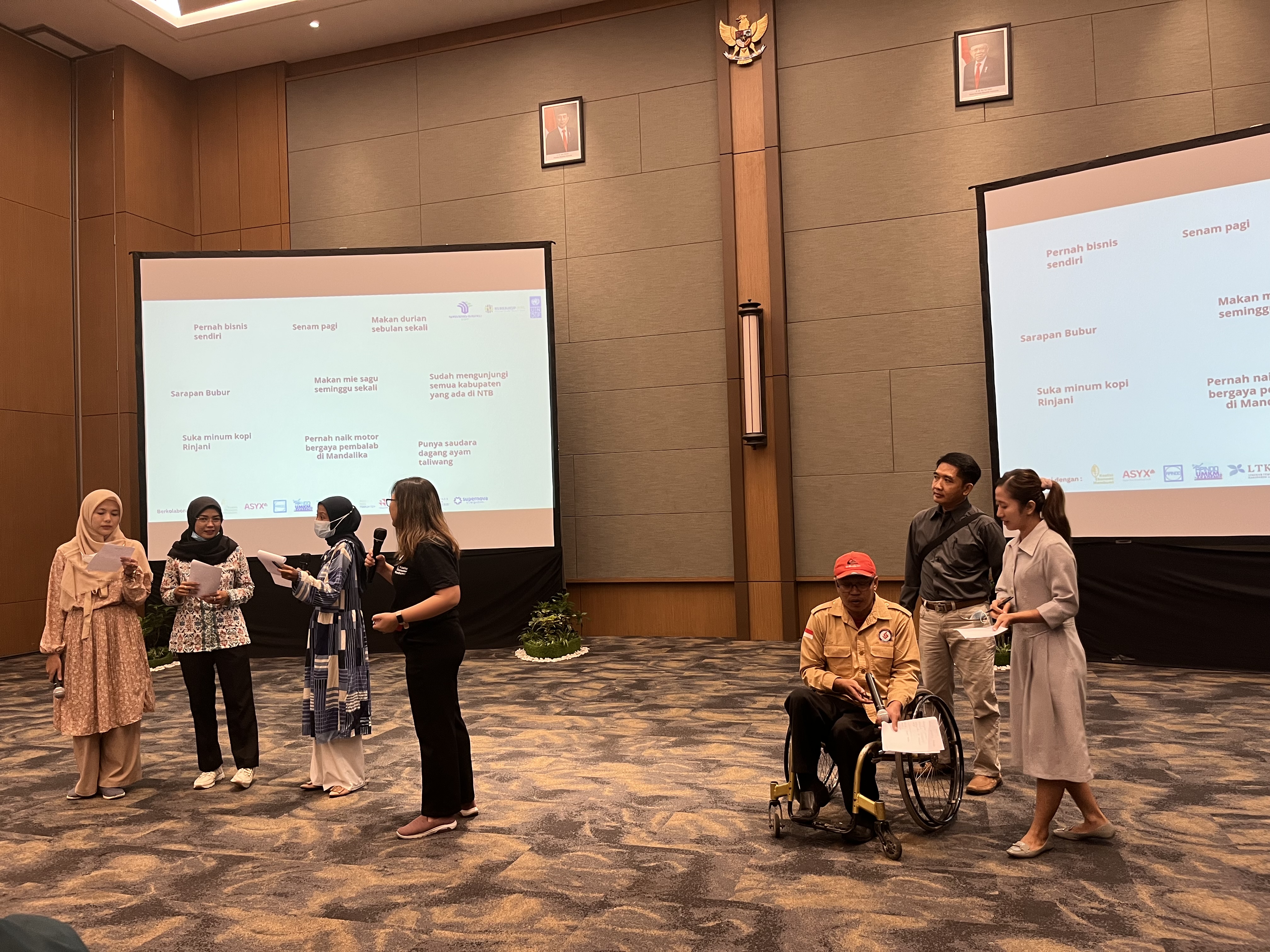Bisnis Lestari: Build Forward Greener, more Inclusive and more Resilient
April 2, 2023

UNDP’s Bisnis Lestari/Sustainable Business program focused on a sustainable, inclusive business transformation module and supported over 1,400 MSMEs.
COVID-19 caused a multi-sectoral impact beyond the health sector in Indonesia. Micro, Small and Medium Enterprises (MSME), the backbone of Indonesia’s economy, were especially impacted. To address the challenges, UNDP supported by the Government of Japan and through the Response towards Covid-19 Resilience (RESTORE) project implemented a Bisnis Lestari/Sustainable Business program.
The program focused around a sustainable business transformation module consisting of theories and exercises on sustainable business assessment, company profile development, business negotiation and partnership, incorporation of sustainable value, and team management. It also created a set of parameters for a sustainable business, including digital agility, profitability, economic circularity, resilience and inclusiveness. The program supported more than 1,400 MSMEs in Jakarta, Bandung and Surabaya and covered four business sectors, food and beverage, textile, furniture and handicraft. At the end of the capacity-building program, 361 participants had successfully incorporated sustainable business parameters in their company profiles. Of these, 25 companies were selected to present their business models to investors.
A study conducted by the United Nations Development Programme (UNDP), telecom company Indosat Ooredo and Indonesia’s Ministry of Cooperatives and Small Medium Enterprises (MCSMEs) on the impact of Covid-19 Restriction policies on MSMEs, revealed a decrease in demand for product, which led to reduced incomes and asset values during the pandemic. In addition, women in the sector were disproportionately affected; more likely to be laid off compared to men. In addition, fewer women-owned businesses received much-needed stimulus payments compared to those owned by men.
In 2018, the sector employed 97 per cent of Indonesia’s workforce, accounting for approximately 61 per cent of the country’s Gross Domestic Product (GDP). As such, support for MSMEs requires transformative measures that ensure a more sustainable, inclusive recovery.
“After joining Bisnis Lestari program, I understood that creating a business is not only about gaining an economic profit but also how to put the balance of the 3Ps [People, Planet and Profit] into our business, said Edita Rianti Anastasia, whose business, Edith House, works with local tailors and crafters and uses local produced, eco-friendly materials. “We also disaggregate our waste transform it into new and marketable products in collaboration with local crafters. Residual material are used to make compost,” she added.
As part of its inclusive strategy, Bisnis Lestari worked on empowering youth and throughout the program cycle. The project also conducted a Training of Trainers (ToT) for 38 civil society organizations (CSO) working on empowering women and Persons with Disabilities.
“Businesses owned by Persons with Disabilities struggle to maintain profitability because of improper financial management,“ said Lalu Wisnu Pradipta, from Lombok Independent Disabilitas Indonesia (LIDI), an organization for Persons with Disabilities. The active engagement of the local CSOs such as LIDI ensures effective advocacy for inclusive polices in line with the principles of leaving no one behind.
By Haryanti Sunarta
Edited by Ranjit Jose

 Locations
Locations